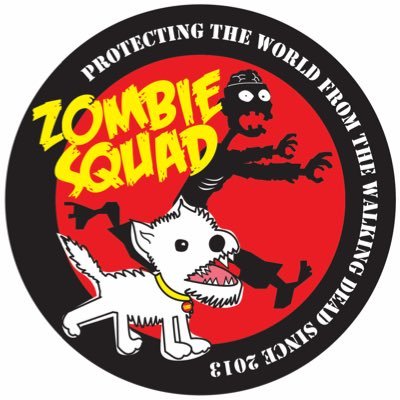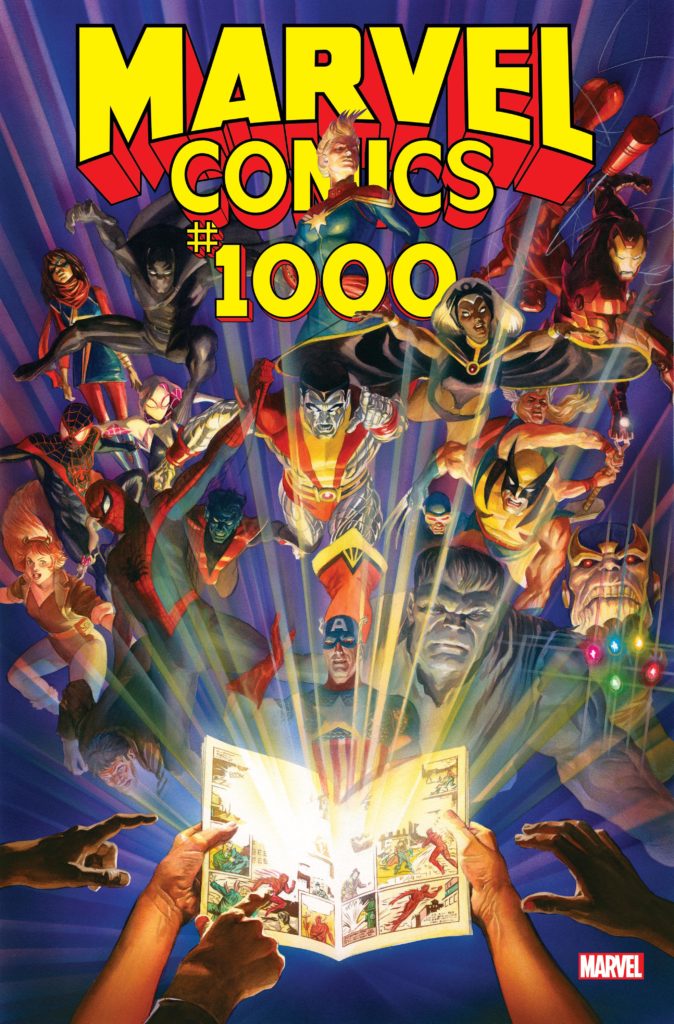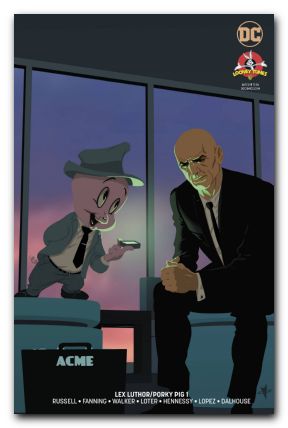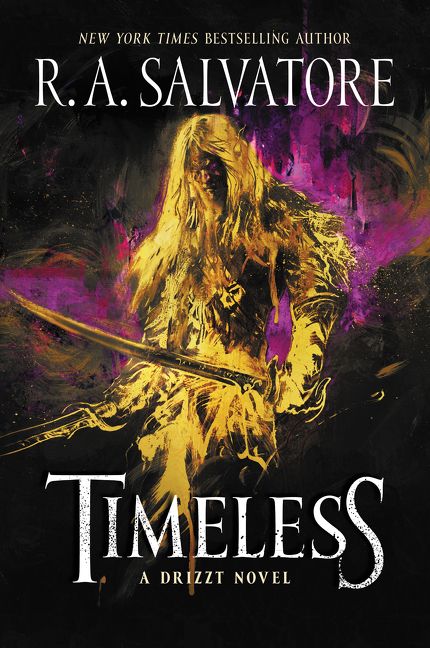(1) HUGO VOTER PACKET ADDITION. The editors of Uncanny Magazine tweeted –
(2) WINDS (OF WINTER) BENEATH MY WINGS. George R.R. Martin gave a classy response to Air New Zealand’s offer to “help” him finish his next book by flying him to their country — “Thanks, New Zealand”.
…Of course, I was especially moved by your offer to bring me to New Zealand “on us.” How wonderfully generous. As it happens, I do have enough money to make it to New Zealand on my own… but there are many American writers, fans, and artists who do not. If you’d care to fly, say, twenty or thirty or fifty of them to Wellington in place of me, I have no doubt they would instantly accept, and fall in love with Middle Earth.. er, New Zealand… just as I have.
Of course, GRRM already has plays to go there – he gave a nice shout-out to CoNZealand.
In the summer of 2020, Wellington is hosting the World Science Fiction Convention, the oldest and most important con in the SF/ fantasy calendar, and they’ve asked me to serve as Toastmaster for the Hugo Awards. Writers, fans, and artists from all over the world will be headed down to check out all of your wonders. I hope lots of you Kiwis will join us.
And while he didn’t promise to have the next book done before then, he expressed hope that he will —
As for finishing my book… I fear that New Zealand would distract me entirely too much. Best leave me here in Westeros for the nonce. But I tell you this — if I don’t have THE WINDS OF WINTER in hand when I arrive in New Zealand for worldcon, you have here my formal written permission to imprison me in a small cabin on White Island, overlooking that lake of sulfuric acid, until I’m done. Just so long as the acrid fumes do not screw up my old DOS word processor, I’ll be fine.
(3) FIFTY YEARS ALREADY? “Disneyland Summons a Spirited 50th for the Haunted Mansion” reports NBC Los Angeles. I was in high school when the attraction was about to open, and was one of the winners of the contest held by KFI radio personality Jay Lawrence to pick a group of people who’d be among the first to go through the ride. You entered by writing a very short (100 word?) bit about your family ghost. I made up something about a relative who was a failed baseball player, and decided to end it all by walking into the ocean – because, don’t you know, there are 20,000 leagues under the sea…
(4) HARASSMENT ALLEGATIONS. “AnimeNEXT Staff Launch Investigation Into Sexual Misconduct Allegations Against Former Con Chair” – Anime News Network has the story.
Allegations of sexual misconduct against a former member of the board of Atlantic City’s AnimeNEXT convention has led to an ongoing internal investigation. Former con staff member “Anne May” posted her story on Facebook on March 12 where she alleged the board member was “handsy,” made inappropriate comments, and invited her back to his room in 2015. Anime News Network learned via former convention staff members that the allegations were levied against long-time AnimeNEXT staffer Eric Torgersen.
…Staff members that were present at the vote stated that the allegations relayed to them by the President of the Board Robert Rustay were misrepresented as less serious.
“What we were told is that one staff member reported that Eric was chatting with them and asked if they drank and then invited them to his room for drinks. The request made them uncomfortable so they reported it to another member of Corporate HR Carlo Darclin. In actuality it was a number of staff members who were approached in a similar fashion,” former staff member “B” told ANN.
“From my understanding, the decision had been made by the President [Rustay] and Chairman of the Board, who also happened to be Eric’s best friend, to move on from the matter,” they said.
Torgersen would remain on the board of directors and a vote held at the meeting would make him convention chair for AnimeNEXT. Torgersen continued as convention chair for two years following the vote. Darcelin chose to retire from the convention following the 2015 vote.
Former staff member “A” cited Torgersen’s friendships with fellow board members Gregg Turek, Lindsey Schneider, and Andrew Green for his continued involvement with the con despite the allegations.
“The entire board would validate his behavior or simply look the other way because they enjoyed their position of power and didn’t want to ruin it,” “A” said.
(5) SAY CHEESE. The Huntsville, AL Museum of Art has opened their new exhibit: “A New Moon Rises: Views from the Lunar Reconnaissance Orbiter Camera” featuring large-scale, high-resolution photographs of the lunar surface captured over the last decade by the Lunar Reconnaissance Orbiter Camera (LROC).
In celebration of the 50th anniversary of man’s first step on the Moon, see Earth’s only permanent natural satellite like never before. A New Moon Rises is a traveling exhibition from the Smithsonian and features amazing, large-scale, high-resolution photographs of the lunar surface taken over the last decade. Captured by the Lunar Reconnaissance Orbiter Camera (LROC), the images are stunning: from historic Apollo landing sites to towering mountains rising out of the darkness of the lunar poles.
The Moon is not the same place as when astronauts last stepped foot on it. New impact craters are being formed. Volcanic activity, once thought long extinct, may have happened in the recent past. The crust has recently fractured from slow interior cooling and shrinking of the Moon and it may still be shrinking today. The LROC has taken over a million images of the surface and revealed details never before seen. These images are providing answers to long-held questions, and raising new questions about the Moon’s ancient and recent past, as well as its future.
The LROC’s mission was originally conceived to support future human missions to the Moon. After its first 15 months of operation, it began a mission of pure scientific exploration.
(6) TODAY IN HISTORY.
May 22, 2008 – Indiana Jones and the Kingdom of the Crystal Skulls set a record for shark leapage.
(7) TODAY’S BIRTHDAYS.
[Compiled by Cat Eldridge.]
- Born May 22, 1859 — Arthur Conan Doyle. I read the Holmes stories a long time ago. My favorite is The Hound of the Baskervilles as it allows him to develop a story at length. Favorite video Holmes? Jeremy Brett. Looking at ISFDB, I’m see there were more Professor Challenger novels than I realized. And the Brigadier Gerard stories sound suspiciously comical… (Died 1930.)
- Born May 22, 1901 — Ed Earl Repp. His stories appeared in several of the early pulp magazines including Air Wonder Stories, Amazing Stories and Science Wonder Stories. Some were collected in The Radium Pool (just three stories), The Stellar Missiles (another three stories) and Science-Fantasy Quintette (five this time with two by L. Ron Hubbard). He also had one SF novel written in 1941, Rescue from Venus. He turned to writing scripts for Westerns and never wrote any fiction thereafter. (Died 1979.)
- Born May 22, 1939 — Paul Winfield. He’s best remembered as Capt. Terrell in The Wrath of Khan, but he was also in the Next Gen episode “Darmok” as the signature character. He showed up in Damnation Alley as a character named Keegan and in The Terminator as Lt. Ed Traxler. Oh, and let’s not forget that he was Lucien Celine In The Serpent and the Rainbow which surely is genre. (Died 2004.)
- Born May 22, 1960 — Andrea Thompson, 59. I’ll not mention her memorable scene on Arliss as it’s not genre. Her noted genre work was as the telepath Talia Winters on Babylon 5. Her first genre role was in Nightmare Weekend which I’ll say was definitely a schlock film. Next up was playing a monster in the short-lived Monsters anthology series. She had an one-off on Quantum Leap before landing the Talia Winters gig. Then came Captain Simian & The Space Monkeys. Really. Truly. Her last genre role to date appears to be in the Heroes: Destiny web series.
- Born May 22, 1964 — Kat Richardson, 55. Her Greywalker series is one of those affairs that I’m pleased to say that I’ve read every novel that was been published. I’ve not read Blood Orbit, the first in her new series, yet. Has anyone here done so?
- Born May 22, 1968 — Karen Lord, 51. She’s a Barbadian writer. Her debut novel, Redemption in Indigo, retells the story “Ansige Karamba the Glutton” from Senegalese folklore; The Best of All Possible Worlds and The Galaxy Game are genre novels as is her edited New Worlds, Old Ways: Speculative Tales from the Caribbean.
- Born May 22, 1979 — Maggie Q, 40. She portrayed Tori Wu in the film adaptation of Veronica Roth’s novel Divergent, a role she reprised in its sequels, Insurgent and Allegiant. She played a female agent in a comedic version of the Jackie Chan fronted Around the World in 80 Days. And she’s in the forthcoming film remake of Fantasy Island. No, I’m not kidding.
(8) GROWING AWARENESS. “13 Reasons Horror Should Put On A Happy Face” is Ace Antonio Hall’s contribution to HWA’s series “Horror & Urban Fantasy Literature’s Effect on Health Awareness” —
…In conclusion, one of my biggest takeaways from researching horror writing for Mental Health Awareness Month was some of the things we shouldn’t do. For example, unless your character is politically incorrect, don’t describe suicide as an “epidemic”, “skyrocketing” or other exaggerated terms. Use words such as “higher rates” or “rising”. Don’t describe suicide as “Without warning” or “inexplicable”. Do convey that the character exhibited warning signs. Don’t refer to suicide as “unsuccessful” or “failed attempt”, or report it as though it was a crime. Do say, “died by suicide” “killed him/herself”, and instead of presenting the act like a crime, write about suicide in your story as a public health issue. Hopefully, as horror authors, we can continue to scare the jeebies out of our readers but at the same time, create a story which accurately exhibits archetypes of mentally ill characters, whether they are mad scientists, psychopathic serial killers or characters with dissociative identity disorders that assume their mother’s personality.
(9) TBR. Andrew Liptak lists “13 new science fiction and fantasy books to check out in late May” at The Verge.
May 15th
Alternis by Maurice Broaddus, Andrea Phillips, Jacqueline Koyanagi, and E.C. Myers
The latest serial from digital publisher Serial Box dropped last week, and it features a great team of writers: Maurice Broaddus, Andrea Phillips, Jacqueline Koyanagi, and E.C. Myers, with Firefly star Summer Glau handling the audiobook narration. In this story, a video game developer learns that the game she’s working on is part of a top-secret government project where countries around the world are competing for real resources.
You can read the first installment for free.
(10) FOLLOW THAT LODESTAR. Bonnie McDaniel has completed her Lodestar YA Award Reviews. Here is her summary. Here are the links to her individual reviews of the finalists:
- The Belles, by Dhonielle Clayton
- Children of Blood and Bone, by Tomi Adeyemi
- The Cruel Prince, by Holly Black
- Dread Nation, by Justina Ireland
- The Invasion, by Peadar O’Guilin
- Tess of the Road, by Rachel Hartman
(11) HUGO NOVELETTES. Standback provides an enthusiastic rundown of the Hugo Best Novelette category: “The Hugo 2019 Best Novelettes are The Best”.
Almost all of these stories are free to read online; and they’re quick and sharp and unusual. If you want the fun and beauty of the Hugos in a nutshell, the Best Novelette category is a damn good place to find it.
(12) HUGO RECOMMENDATIONS WIKI. Standback also announced: “I’m picking up the Hugo Nominee Wiki that Didi Chanoch has been running the last few years — just a simple site for collecting (and keeping track of…) recommendations and notable nominees in the various categories” — Hugo Award Nominees 2020 Wiki
This wiki is a handy place to collect recommendations for 2019 works which are eligible for a Hugo Award in 2020!
If you’re looking for recommendations from last year, the 2019 wiki is right here.
(13) MORE NOVELETTE LOVE. Peter Enyeart’s “2019 Hugo Picks: Novelettes” are also filled with praise.
This is a strong set, perhaps my favorite set of nominees ever. I enjoyed reading all of them, and I’m sad I have to rank any of them lower than #1.
(14) ONE BORN EVERY MINUTE? BBC asks “Would you pay $1m for a laptop full of malware?” (I’m afraid I own one of these already!)
A laptop deliberately infected with six notorious strains of malware, including WannaCry and ILoveYou, is being auctioned in the US as an art project.
At time of writing, the highest bid for the device was $1.1m (£800,000).
…The project is a collaboration between the artist Guo O Dong and a New York cyber-security company called Deep Instinct.
“We came to understand this project as a kind of bestiary, a catalogue of historical threats,” Guo told Vice.
“It’s more exciting to see the beasts in a live environment.”
(15) TODAY’S THING TO WORRY ABOUT. “Female-voice AI reinforces bias, says UN report” – BBC has the story.
AI-powered voice assistants with female voices are perpetuating harmful gender biases, according to a UN study.
These female helpers are portrayed as “obliging and eager to please”, reinforcing the idea that women are “subservient”, it finds.
Particularly worrying, it says, is how they often give “deflecting, lacklustre or apologetic responses” to insults.
The report calls for technology firms to stop making voice assistants female by default.
The study from Unesco (United Nations Educational, Scientific and Cultural Organization) is entitled, I’d blush if I could, which is borrowed from a response from Siri to being called a sexually provocative term.
“Companies like Apple and Amazon, staffed by overwhelmingly male engineering teams, have built AI systems that cause their feminised digital assistants to greet verbal abuse with catch-me-if-you-can flirtation,” the report says.
(16) SUPERBUGS MR. RICO! NPR tells how “Scientists Modify Viruses With CRISPR To Create New Weapon Against Superbugs”.
…”What CRISPR is able to do is something that we’ve not been able to do before. And that is, very selectively modify genes in the viruses to target the bacteria,” Priebe says.
Later this year, Dr. Michael Priebe and his colleagues plan to start infusing cocktails containing billions of bacteriophages genetically modified with CRISPR into patients at six centers around the United States.
“If we’re successful, this revolutionizes the treatment of infections,” he adds. “This can be the game changer that takes us out of this arms race with the resistant bacteria and allows us to use a totally different mechanism to fight the pathogenic bacteria that are infecting us.”
The approach, developed by Locus Biosciences of Morrisville, N.C., involves viruses known as bacteriophages (called phages for short). Phages are the natural enemies of bacteria. They can infect and destroy bacteria by reproducing in large numbers inside them until the microbes literally explode.
(17) WHY A SKYWALKER HAS TRUE GRIT. It may have something to do with the location shooting — “Star Wars: The Rise of Skywalker, The Ultimate Preview” at Vanity Fair.
There’s a desert valley in southern Jordan called Wadi Rum, or sometimes “the Valley of the Moon.” There are stone inscriptions in Wadi Rum that are more than 2,000 years old. Lawrence of Arabia passed through there during the Arab Revolt against the Ottoman Empire. More recently, J. J. Abrams went there to film parts of the latest Star Wars movie, The Rise of Skywalker, because it’s largely uninhabited and starkly beautiful and looks plausibly alien, and one of the things that has always made the Star Wars movies feel so real—as if they had a real life of their own that continues on out beyond the edges of the screen—is the way they’re shot on location, with as few digital effects as possible. George Lucas shot the Tatooine scenes from A New Hope in southern Tunisia. For Skywalker, it’s Wadi Rum.
They don’t do it that way because it’s easy. Abrams and his crew had to build miles of road into the desert. They basically had to set up a small town out there, populated by the cast and extras and crew—the creature-effects department alone had 70 people. The Jordanian military got involved. The Jordanian royal family got involved. There was sand. There were sandstorms, when all you could do was take cover and huddle in your tent and—if you’re John Boyega, who plays the ex-Stormtrooper Finn—listen to reggae.
(18) RESCUED FROM THE CUTTING ROOM FLOOR. Yahoo! Entertainment reveals “Carrie Fisher and Daughter Billie Lourd Will Appear in Scenes Together in New Star Wars Film”.
Fans of Carrie Fisher will be able to see the star live on in Star Wars: The Rise of Skywalker — with her daughter Billie Lourd right beside her.
Director J.J. Abrams told Vanity Fair he used old footage of Fisher for the upcoming Episode IX and had cut Lourd, 26, out of those scenes with her late mother thinking it would be too painful for the young actress to see.
Instead, Lourd asked him to keep their scenes intact….
[Thanks to Standback, Martin Morse Wooster, Mark Hepworth, Marc Criley, JJ, Chip Hitchcock, Errolwi, Cat Eldridge, Mike Kennedy, John King Tarpinian, Andrew Liptak, Andrew Porter, and Carl Slaughter for some of these stories. Title credit goes to File 770 contributing editor of the day Daniel Dern.]

















